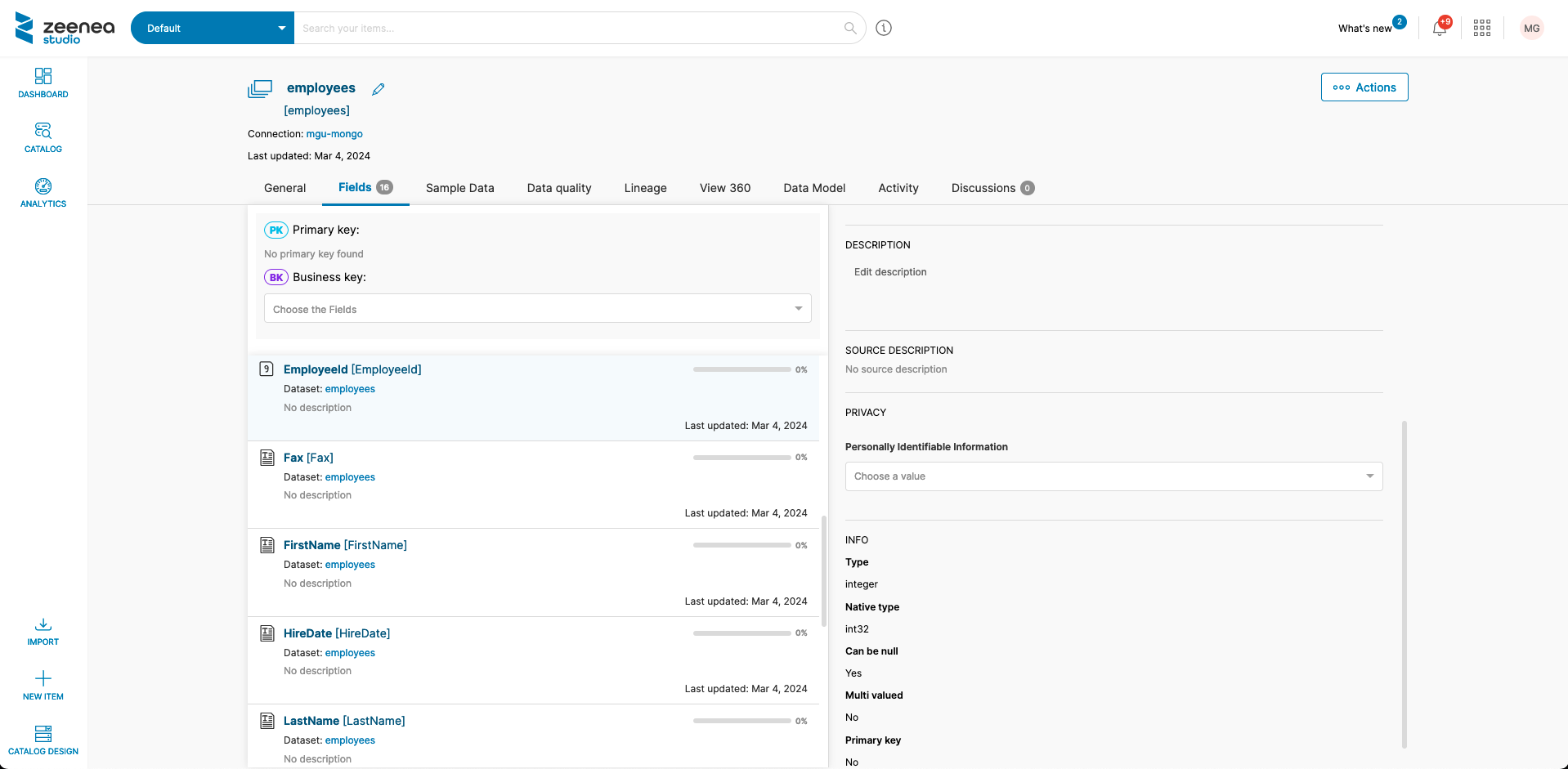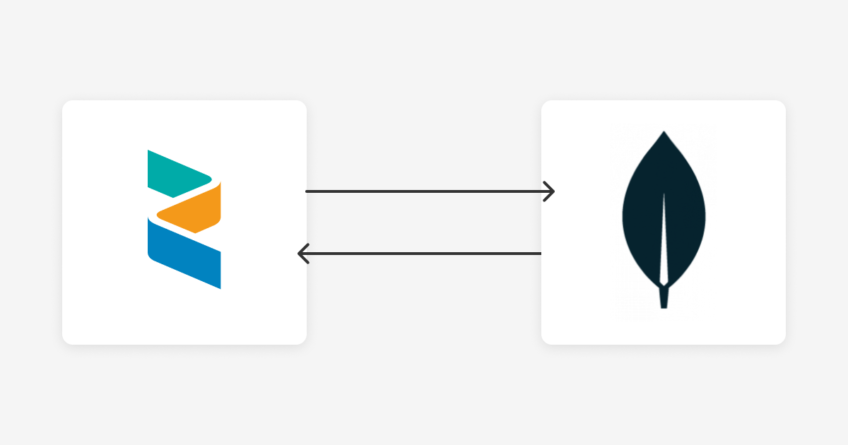Zeenea x MongoDB
-
Connector Highlight
At Zeenea, we develop advanced connectors to automatically synchronize metadata between our data discovery platform and all your sources. This native connectivity saves you the tedious and challenging task of manually finding the data you need for a specific business use case that often requires access to scarce technical resources.
Discover and unlock the value from your MongoDB assets
MongoDB is a NoSQL database system that stores and manages data in a document-oriented format. Unlike traditional relational databases, MongoDB allows data to be stored in JSON-like documents with varying structures. MongoDB is favored for contemporary web and mobile apps, content management systems, and data-heavy projects due to its strong query capabilities, support for geospatial data, and the ability to scale horizontally.
Synchronize your MongoDB data via Zeenea’s connector
With Zeenea, discover your MongoDB data in seconds. Zeenea collects your MongoDB datasets and associated Fields, as well as any technical and operational metadata, and other documentation you may have provided at the field table level.
Zeenea’s MongoDB connector offers a choice of two distinct metadata extraction modes: Sample mode and MapReduce mode. In Sample mode, a sample of the objects in a collection is analyzed to extract the object schema, making it efficient and effective. MapReduce mode ensures that all fields are listed, including those used only once. However, analysis will take longer, especially for large collections. You can always switch to the other mode, to choose the one best suited to your situation.

Zeenea Studio – MongoDB Dataset
Zeenea is compatible with:
- MongoDB – all versions ✅
How does the MongoDB integration work in Zeenea?
Easily and quickly configure the MongoDB connector from our platform
- Create a user with sufficient permissions to establish a connection with MongoDB;
- Download and configure Zeenea’s MongoDB plugin;
- Start collecting and inventorying your MongoDB datasets and their associated fields in the data catalog!











































































